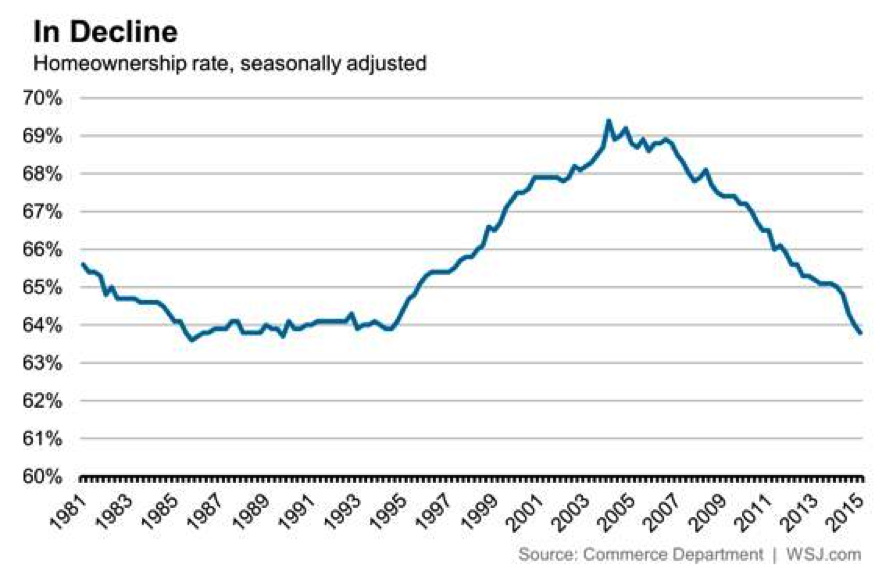In 2002, June was declared National Homeownership Month by President George W. Bush, building upon the focus given to home ownership by the Clinton Administration beginning in 1995. The pride in homeownership here in the US, however, runs deeper than the last two decades. The ability to own your own home, if you work hard, is central to the American Dream. President Clinton began his campaign to extend homeownership in the US month 20 years ago—as we hit the halfway point in this year’s National Homeownership Month what is the state of progress in building American home ownership?
Today, homeownership in the US sits at the lowest rate since 1989. The homeownership rate fell to 63.8% in the first quarter of 2015, and has declined steadily since peaking at 69.2% in 2005. Much of the decline can be attributed to fallout from the 2008 financial crisis, and the housing bubble which helped drive the financial collapse. Americans have been cautious since then, and many families are only now recovering enough to consider buying a home.
There are, however, reasons to think that homeownership is poised to make a comeback. There are nearly 2 million more renter households than there were this time last year, and eventually, some of these renters are likely to become homeowners. Renting is often the first step towards homeownership. Vacancy rates for both rental apartments and owner occupied homes also fell from last year.
Progress has been slow, and while a huge turnaround is not likely around the corner, the future for American home owners should be bright. When President Bush first established National Homeownership Month in 2002 he said “where homeownership flourishes, neighborhoods are more stable, residents are more civic-minded, schools are better, and crime rates decline.” This is still true today.







